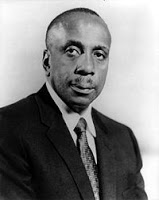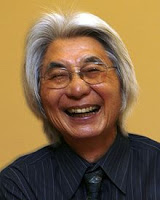Howard Thurman came of age in the segregated South in Daytona, Florida. While he wrote The Luminous Darkness in 1965, his reflections reach back decades earlier to his childhood. He came to realize that in the eyes of whites in his community he was regarded as a non-being, whose thoughts, needs and desires were only important to the extent that they affected the white community. So, early on in life he developed a hatred for white people even though he and his whole family were devout Baptists. He came to regard whites as existing outside of his moral universe, so that his Christian ethic of love did not apply to whites. Likewise, he recognized that to the whites across town, he and his people were also beyond their Christian ethic, and so well meaning, supposedly ethical people carried on without regarding the needs, fears or being-ness of the other. The large difference between whites and blacks during segregation was that anytime whites wanted to exercise their power over against the black community, culture and law allowed them to do so freely. So for instance, most black children in Daytona never went to school beyond the 7th grade because the white power structure decided no more school beyond 7th grade was needed for blacks. Thurman himself was forced to leave home at an early age in order to go to high school as there were only 2-3 black high schools in the entire state of Florida.
Ronald Takaki wrote A Different Mirror in 1992 and then revised it in 2008. He meticulously recounts the histories of non-European ethnic groups who either resided in North America or immigrated to the United States. His history records the oppression, violence and indignities that these groups experienced at the hands of the European colonizers. Starting with the near genocide of Native Americans and the enslavement of Africans, he goes on to talk about the histories of the Irish, Russian Jews, Chinese, Japanese and Mexicans. In every case, exploitation of these groups was justified for economic reasons, and blessed by the Church with a sense of Divine Providence and Manifest Destiny. What comes thru Takaki’s history is that the United States achieved its current greatness by treating and regarding many people groups as subhuman. This country would not have achieved its economic strength were it not for the free labor of the African slaves, the annexation of Mexican territory, the appropriation of Native American sacred lands, and the exploitation of Irish, Chinese and Japanese labor. Takaki does not recount this history with an ax to grind, but rather to bring to light the fact that the American story is a multicultural, multiethnic story, and not simply the story of enlightened Europeans claiming a new land. He concludes his book by asking whether we will continue to resist and deny our multicultural heritage, or will we move into the future embracing the multicultural society that we are. While at one level we are aware of this history and these questions, Takaki brings them front and center in a well-researched compelling narrative.
The rallying cry of many of the conservatives, who won election last Tuesday, was to “take America back.” People are worried about jobs, taxes, and the threat of terrorists. Simultaneous to the election was a vitriolic debate as to whether Muslims should build n cultural center a few blocks from Ground Zero in New York City. Furthermore, President Obama introduced an immigration reform bill that responded to the ongoing debate about Arizona’s restrictive immigration law. Moreover, the current economic recession has pushed more people into poverty than has been seen in decades. As this election proceeded the people under question were treated as non-beings: Muslims, undocumented immigrants, children of immigrants denied citizenship though raised in this country, and the people living near or below the poverty line. Their needs and concerns did not get any notice or play; they did not matter. Furthermore, these groups of people are not part of the America that conservatives are “taking back” and yet they ARE part of the American fabric. The Conservatives and Tea Party-ers placed a strong emphasis on personal freedom, but little to no words about community and living together amongst our differences. Thurman’s words about how blacks in the segregated South were regarded could easily apply to the current attitude of many Americans toward Muslims, immigrants and the poor. Yet these folks are here, they are part of us, and yet we think and act with no regard to their presence; and we do so to our own moral degradation and spiritual demise.





Thanks Drick. Your presentation is improving, your words are thoughtful. I concur about the back and forth in the next decades. I am hopeful; in that, the country passed a major milestone in the election of Obama toward the changes about which you write. I am hopeful that we have different voices that strive for change while others seek continuity. I am always reminded of quote in the "Anthills of the Savannah" by Chinua Achebe, "It is easier for a poor man to become a rich man, than a rich man to become a poor man." Meaning: as groups gain access to power they tend to fall prey to the same code of ethics ( or lack thereof) as those who were in power before them–to protect what they have–to gain what they want. I carry the hope that we will not only remember the past–and learn it–but apply the lessons to our future.
Nathan
96841 Скачать День, когда Земля остановилась )))
эроклассники –
эроклассники сом 291387
134 www эроклассники ru
www эроклассники 3895